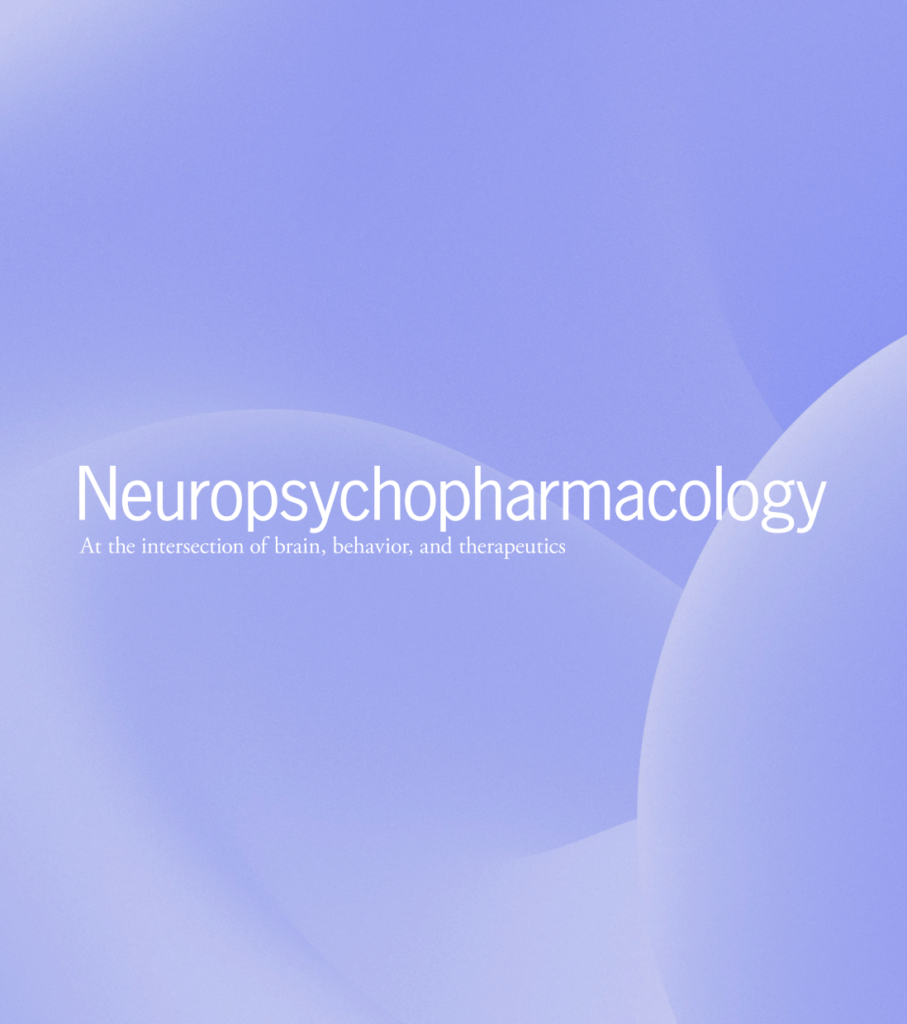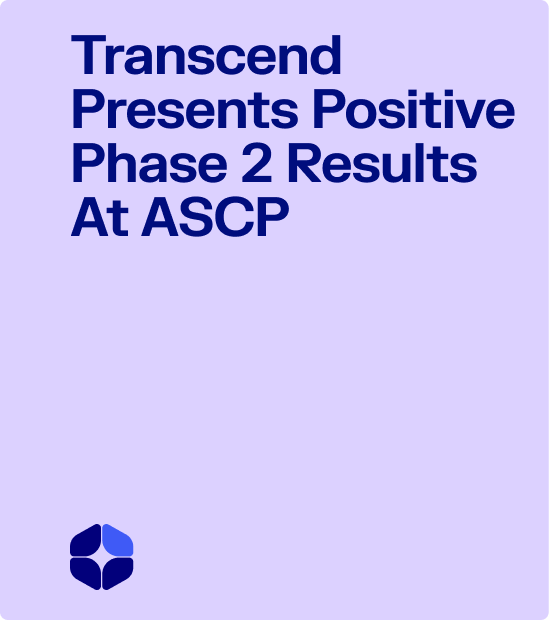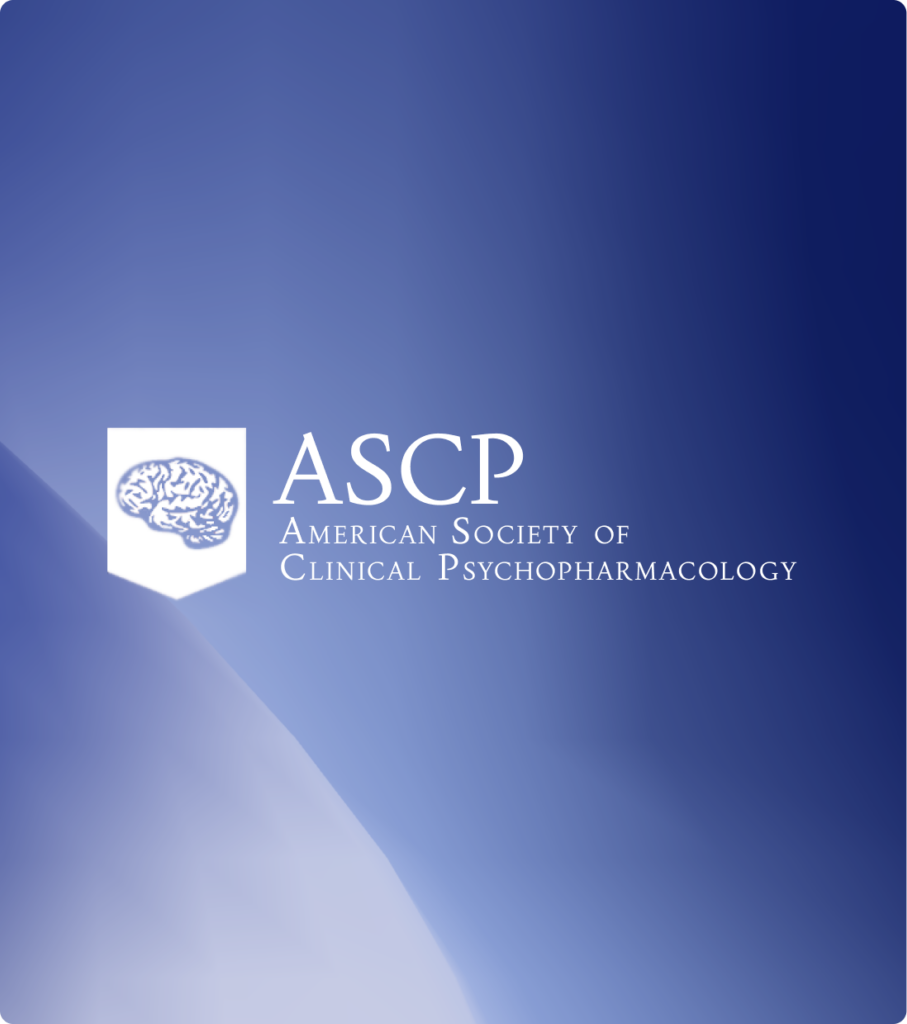February 23, 2023
Transcend Investors:
Today marks a promising day for the billion people who suffer from mental illness – and a hopeful day for countless of us who have been affected by it.
After years of exploring the treatment and research landscape for post-traumatic stress disorder (PTSD), depression, and other neuropsychiatric illnesses, I’m excited to announce that Transcend Therapeutics, the neuroscience-focused biopharmaceutical company I co-founded with Kevin Ryan (Founder and CEO, AlleyCorp) and Dr. Benjamin Kelmendi (Assistant Professor of Psychiatry at the Yale School of Medicine and co-director of the Yale Program for Psychedelic Science), is coming out of stealth with nearly $42 million in funding. This capital will enable us to accelerate our development of a uniquely promising compound to treat post-traumatic stress disorder (PTSD) among other neuropsychiatric conditions, and further the development of future compounds.
Background
I am personally acquainted with mental illness, but thankfully had the opportunity to recover. Many I cared about did not.
After learning of yet another friend’s suicide, I dedicated my career to working to end human suffering from mental illness – disorders that are complex and poorly understood, in part because they have been under-researched and underfunded for decades. Many pharmacological treatments for mental illness haven’t significantly improved outcomes for patients in decades. In the case of PTSD, we’ve seen very little progress in over 60 years. This led me to spend years researching promising treatments, interviewing dozens of leading academics and innovators, and digging into the data on psychedelics as a potential treatment for mental illnesses. And, ultimately, in 2021, Kevin, Ben, and I decided to launch Transcend Therapeutics.
When we started, we were clear on our vision. We wanted to use our collective expertise to develop medicines to help create a world where people no longer suffer from neuropsychiatric illness. We’ve taken a different, and we believe more promising approach, by looking at compounds with real-world evidence suggesting they could be safe and effective in patients.
Fortunately, we’ve seen significant progress made when it comes to societal acceptance of psychedelics as a potential treatment option for some patients – and I’m thankful for those who are pushing the industry forward and overjoyed for the people who will benefit from them. At the same time, access to psychedelics will be a significant challenge for most who suffer from mental health diseases. I learned in speaking with experts in the field that although classic psychedelics and entactogens (e.g. psilocybin, LSD, MDMA, DMT, and 5-MeO-DMT) may benefit some patients, it’s possible that as few as 5% of patients in need will be able to access them if and when approved. Many psychedelics and entactogens cannot be taken while a patient is on antidepressants, which more than 70% of people who suffer from PTSD or depression are already prescribed. Furthermore, many patients and clinicians are concerned and hesitant about the intense psychological experiences associated with these substances. Finally, the existing shortage of mental health clinicians may create access and cost challenges for administering drugs that require intensive psychotherapy from clinicians with specialized training.
So, Kevin, Ben, and I began exploring what drugs would be more accessible to a wider group of patients. We knew there were psychoactive compounds with real-world evidence across various neuropsychiatric illnesses. Which led us to our lead compound, methylone, a compound that is analogue to MDMA.
The promise of methylone
We’ve published a clinical case series in which methylone demonstrated robust responses in patients with PTSD[1], most of whom would be considered severely ill and had failed prior treatment. And, unlike first-generation psychedelics and entactogens such as psilocybin or MDMA, we have data suggesting that methylone’s effects would be unchanged for patients taking antidepressants (e.g., Prozac and other SSRIs) for mental illness – making it a potentially viable option for a much greater number of people.
PTSD and depression have a huge unmet medical need in the U.S. and abroad. Of the approximately 12 million patients with PTSD[2] and 26 million patients with major depressive disorder[3] in the U.S. alone, approximately 70% are prescribed antidepressants[4],[5]. In addition, unlike classic psychedelics, methylone is not hallucinogenic, has short-acting and mild psychological effects, and could require less clinician time for administration, making it better suited to integrate into our existing medical system.
Even with a promising compound identified, we knew it was important to assemble a world-class team to advance the development process and drive the mission forward. Leaning on Kevin’s wisdom and experience founding multiple category-leading companies and Ben’s research in this area (he received the National Institutes of Health’s first federal grant in over 50 years to clinically study psychedelics), we focused on building a strong company foundation and taking a drug with promising early results to one that could someday be widely available.
We were eventually introduced to Marty Stogniew, PhD, a pharmaceutical executive with decades of experience leading research and development, significant contributions to 9 FDA drug approvals, and 40 patents. Our original goal was to learn from Marty’s experience as an advisor, but seeing as much promise in the company as we did, Marty joined full-time as our Chief Development Officer. In 2022, we added Amanda Jones, PharmD, a veteran clinical development executive who most recently led the clinical development from IND to NDA of the first and only oral NMDA receptor antagonist approved for treating major depressive disorder in adults (Auvelity). Together, our leadership team has made pivotal contributions totaling $7 billion dollars in M&A and public company value.
The road to securing FDA approval is not an easy path, but it’s one our team has successfully navigated many times (13 to be precise). We know that there is little room for error and no room for complacency – we must demonstrate both safety and efficacy at each regulatory milestone. And given the capital markets environment, we must run a lean and disciplined business. This work is complex and inherently challenging, but our team is up for the task.
Moving forward
Every day methylone isn’t available is another day people suffer unnecessarily. That’s what motivates us. And recognizing that no one compound is a panacea, we have other compounds at earlier stages of the development that hold significant promise as well. We are committed to discovering, developing, and delivering the next generation of psychoactive compounds to treat neuropsychiatric illness.
Since no one company or drug will put an end to suffering, we enthusiastically support other organizations and leaders who share our vision. Founded as a Public Benefit Corporation; we have pledged 10% of our founding shares to nonprofits focused on research and access.
As we drive progress on methylone and other compounds, we do so with an unwavering commitment to our values, which speak to how we want to work and the behaviors we must demonstrate in order to take on such a big challenge:
- Operate with good intent. Above all, we aim to reduce suffering. We must remain selfless in pursuit of that noble goal, acting with good intent and assuming the same in our partners and peers.
- Proceed with passion. We’re working to usher in an era where people with mental illness have safe and easy access to the treatments they need. Fulfilling that mission demands creative ideas, camaraderie among collaborators, and an understanding that we are all responsible for our individual and team success.
- Be willing to work—and learn—together. The problems we’re working to solve are complex, and no one person has every solution. Making the best decision as a team is more important than being individually “right.” The diversity of our backgrounds and experiences is a strength; when all of those views are synthesized, we can develop new solutions and make better decisions.
- Stay focused and flexible. Resourcefulness plays a major part in our success; we can’t let unexpected setbacks derail our progress. Think creatively, act ethically, and find a way to get it done.
I am grateful for the support of our friends, families, and investors, and hopeful that we will be able to offer a transformative solution to those who struggle with persistent mental health challenges.
While we have much work ahead of us – pushing our lead compound and the rest of our pipeline forward – today is a promising step forward in our commitment to creating a world where people no longer suffer from neuropsychiatric illness.
Blake Mandell
Co-Founder and CEO
Transcend Therapeutics
[1] Kelmendi, B., Pittenger, C., Ching, T., Farré, M., Mandell, B., & Stogniew, M. Clinical Evidence for the Use of Methylone in the Treatment of PTSD: A Case Series with Long-Term Follow-Up. Ann Clin Case Rep. 2022; 7, 2209.
[2] U.S. Department of Veteran Affairs, PTSD: National Center for PTSD (2020)
[3] Substance Abuse and Mental Health Services Administration. (2022). Key substance use and mental health indicators in the United States: Results from the 2021 National Survey on Drug Use and Health (HHS Publication No. PEP22-07-01-005, NSDUH Series H-57). Center for Behavioral Health Statistics and Quality, Substance Abuse and Mental Health Services Administration.
[4] Mohamed, S., & Rosenheck, R. A. (2008). Pharmacotherapy of PTSD in the US Department of Veterans Affairs: diagnostic-and symptom-guided drug selection. Journal of Clinical Psychiatry, 69(6), 959-965.
[5] Luo, Y., Kataoka, Y., Ostinelli, E. G., Cipriani, A., & Furukawa, T. A. (2020). National prescription patterns of antidepressants in the treatment of adults with major depression in the US between 1996 and 2015: a population representative survey based analysis. Frontiers in psychiatry, 11, 35.
)



